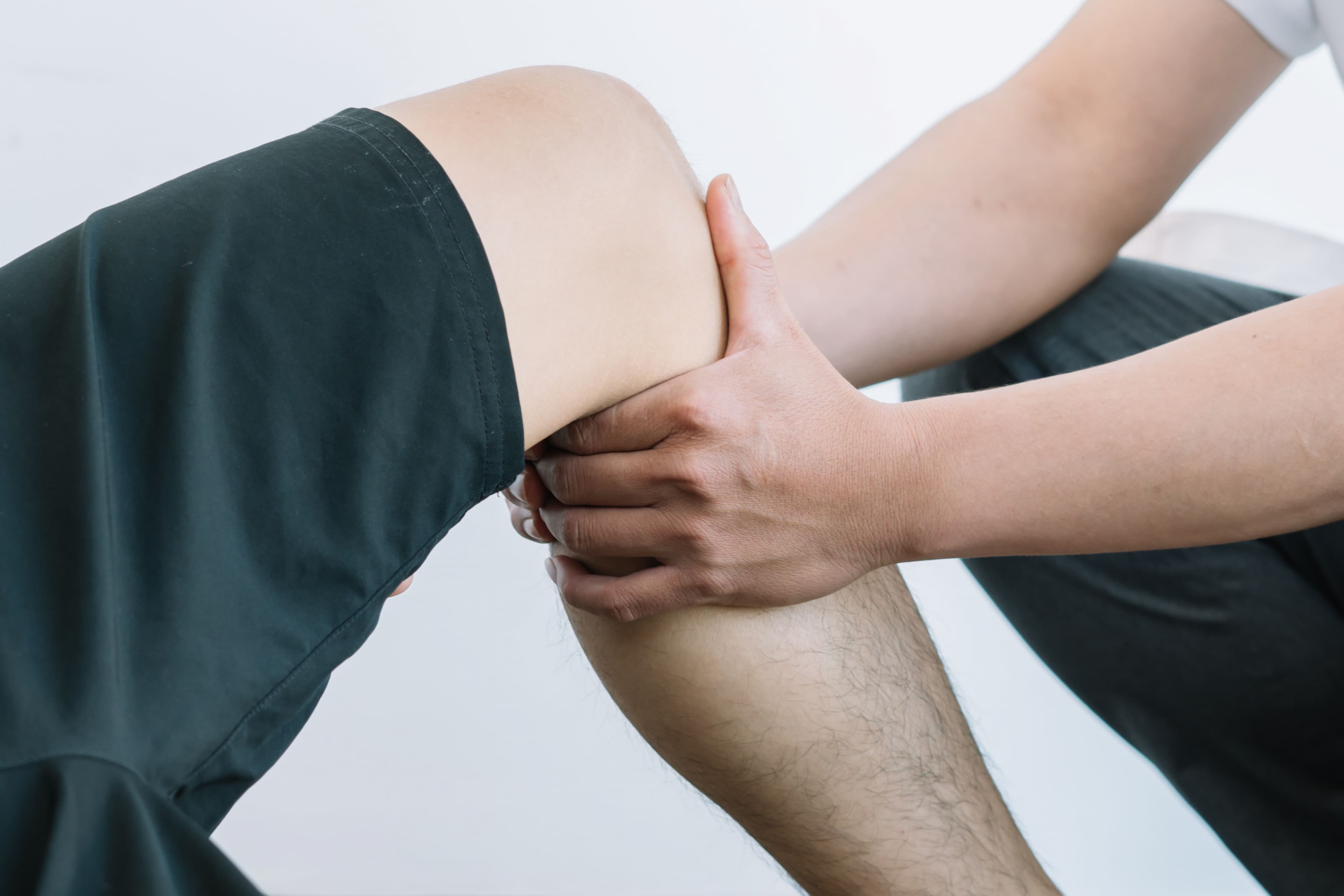The link between sleep, fatigue and osteoarthritis
Osteoarthritis and fatigue: an often underestimated link
Osteoarthritis is not just about pain: many patients describe persistent fatigue that affects their physical and mental energy. Recent literature confirms that sleep disorders exacerbate pain and fatigue in people with osteoarthritis — a vicious circle in which every bad night's sleep worsens the symptoms the next day1.
A review dedicated to fatigue in osteoarthritis highlights multiple correlates: pain, sleep disorders, mood, inactivity, comorbidities. In other words, fatigue is a symptom in its own right that needs to be assessed and managed, and not just as a "consequence" of pain2.
Osteoarthritis flare-ups and fatigue: a vicious circle
During an osteoarthritis flare-up, pain intensifies. Joints swell or stiffen more. Fatigue is then very severe.
Inflammation increases exhaustion and pain often disrupts sleep. Many patients describe a vicious circle: the more severe the pain, the less restful the sleep, and the more fatigue sets in the next day. Repeated flare-ups weaken the body and mind, reduce exercise tolerance and increase pain perception.
Knee osteoarthritis and night-time pain
Knee osteoarthritis is a good example of this link between pain and disturbed sleep. Knee osteoarthritis frequently causes night-time pain5 . This pain wakes patients up and causes stiffness upon waking, requiring a period of "warming up" before they can move normally6. This contributes to chronic sleep deprivation, which in turn increases fatigue3 .
Disturbed sleep, an aggravating factor in fatigue
Does osteoarthritis cause fatigue?
Sleep disturbance has a considerable impact on daily life. The lack of restorative rest limits concentration, increases irritability and sometimes leads to withdrawal from activities. Physically, reduced recovery promotes a sedentary lifestyle and exacerbates fatigue . So, the question "does osteoarthritis cause fatigue?" has a clear answer: yes, it does, both directly and indirectly, through pain, inflammation and poor sleep quality1.
Does osteoarthritis hurt at night?
Yes, osteoarthritis can hurt at night. Night-time pain is particularly common in the knees and hips5. It often occurs in the early part of the night , at a time when the natural production of cortisol(*) decreases7. This phenomenon explains why many osteoarthritis patients wake up with intense pain and stiffness that requires time to "warm up" after waking.
What solutions are there for sleeping better and feeling less tired?
There are several solutions to break this vicious circle. Good sleep hygiene is an essential first step: go to bed at regular times, promote a calm environment and limit stimulants in the evening. Certain resting positions can also help, such as placing a cushion between the knees to improve comfort and relieve pain during sleep8. The use of relaxation techniques, heat or cold depending on the symptoms, can also help you fall asleep more easily. Gentle physical activity, practised regularly, strengthens muscles and relieves joints, while reducing fatigue. Finally, it is important to be supported by a healthcare professional who can adapt pain relief treatments and suggest personalised strategies in the event of flare-ups.
* Cortisol is a steroid hormone produced by the adrenal glands. It plays a key role in regulating stress, metabolism, the immune system and blood pressure4.
1 Are nights of poor sleep related to greater next-day fatigue and pain in older adults with symptomatic osteoarthritis? An actigraphy and ecological momentary assessment study
Kratz, A. et al.
The Journal of Pain, Volume 19, Issue 3, S7 - S8
2 Hackney, A. J., Klinedinst, N. J., Resnick, B., Renn, C., & Fiskum, G. (2019). A review and synthesis of correlates of fatigue in osteoarthritis. International Journal of Orthopaedic and Trauma Nursing, 33, 4–10. https://doi.org/10.1016/j.ijotn.2019.01.003
3 Dai, Z., Neogi, T., Brown, C., Nevitt, M., Lewis, C. E., Torner, J., & Felson, D. T. (2019). Sleep Quality Is Related to Worsening Knee Pain in Those with Widespread Pain: The Multicenter Osteoarthritis Study. The Journal of Rheumatology, 47(7), 1019–1025. https://doi.org/10.3899/jrheum.181365
4 https://institutducerveau.org/lexique/cortisol
5 van Berkel AC, Ringelenberg R, Bindels PJE, Bierma-Zeinstra SMA, Schiphof D. Nocturnal pain, is the pain different compared with pain during the day? An exploratory cross-sectional study in patients with hip and knee osteoarthritis. Fam Pract. 9 February 2023;40(1):75-82. doi: 10.1093/fampra/cmac074. PMID: 35849140; PMCID: PMC9909644.
7 Spies CM, Straub RH, Cutolo M, Buttgereit F. Circadian rhythms in rheumatology--a glucocorticoid perspective. Arthritis Res Ther. 2014 Nov 13;16 Suppl 2(Suppl 2):S3. doi: 10.1186/ar4687. PMID: 25608777; PMCID: PMC4249493
8 Understanding the pain experience in hip and knee osteoarthritis – an OARSI/OMERACT initiative
Hawker, G.A. et al.
Osteoarthritis and Cartilage, Volume 16, Issue 4, 415 - 422


